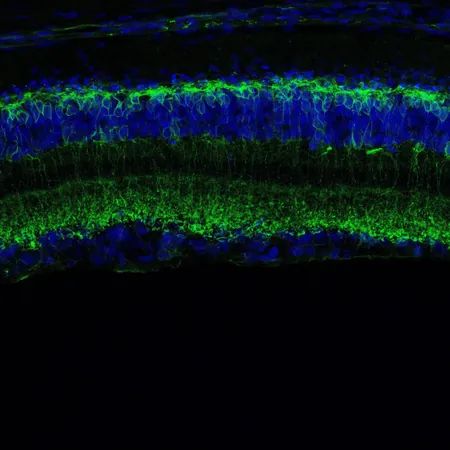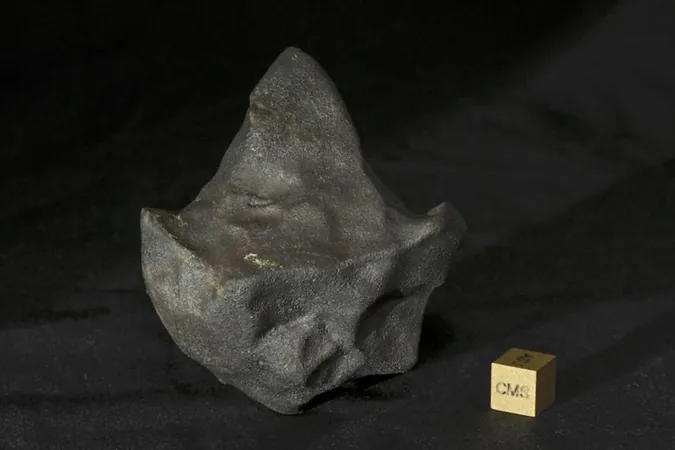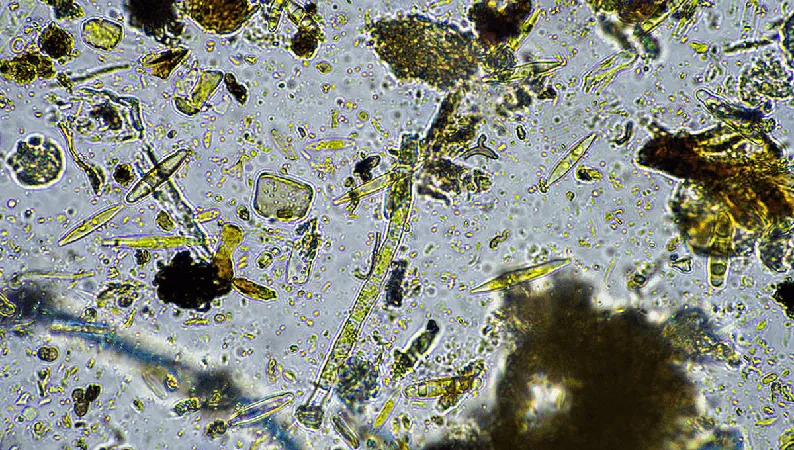
Breakthrough in Vision Restoration: Ziapin2 Offers Hope Against Blindness
2025-01-21
Author: Siti
Introduction
A groundbreaking discovery made by a collaborative team of researchers from the Istituto Italiano di Tecnologia (IIT) and IRCCS Ospedale Policlinico San Martino suggests that the Ziapin2 molecule could be the key to fighting retinitis pigmentosa and age-related macular degeneration—two major causes of vision loss that gradually destroy the light-sensing cells in the retina.
Study Overview
Published in the prestigious journal *Nature Communications*, the study is led by Fabio Benfenati, an expert in synaptic neuroscience, and Stefano Di Marco, showcasing a promising potential for Ziapin2 to restore vision in those afflicted by these debilitating conditions.
Current Challenges in Vision Loss Treatment
Retinitis pigmentosa, a genetic disorder affecting approximately 1 in 3,500 individuals, and age-related macular degeneration, impacting around 7-8% of the population, particularly seniors, currently have no effective remedies to rebuild sight. While treatments such as optogenetics and retinal prostheses have been explored, results have often been disappointing, stymied by challenges in accurately relaying visual signals from damaged photoreceptors.
Mechanism of Action
The researchers found that Ziapin2 acts like a phototransducer, capable of absorbing light and converting it into an electrical signal. Remarkably, it adjusts the electrical characteristics of neuronal membranes in response to light. This modification reinstates ON, OFF, and ON-OFF responses typical of healthy retinas in pre-clinical retinitis pigmentosa models, essentially “rebooting” the retinal response to visual stimuli.
Experimental Findings
One of the most striking outcomes from their experiments was Ziapin2's ability to restore visual behaviors in models that had reached total blindness. After an intravitreal injection, Ziapin2 induced visual responses for a minimum of two weeks, all while passing rigorous safety tests with no observed toxic reactions.
Broader Implications
Interestingly, Ziapin2 was initially patented in 2020 and has now shown effectiveness beyond cellular models, acting on bipolar cells within the inner retina, which process light and dark information before transmitting it to the brain. This advancement signifies a substantial leap toward real-world clinical applications, offering new hope for those suffering from degenerative retinal diseases.
Expert Insights
Fabio Benfenati expresses optimism, stating, "The Ziapin2 molecule demonstrates extraordinary potential for restoring visual responses in cases of photoreceptor degeneration." He emphasizes the importance of reinstating the physiological antagonism between ON and OFF retinal neurons—an essential feature for natural vision.
Stefano Di Marco adds, "Our study reveals that Ziapin2 can regenerate important retinal functions, representing a promising breakthrough in recovering sight for patients with degenerative conditions."
Conclusion
With the potential for a life-changing impact on individuals facing blindness, Ziapin2 stands out as a beacon of hope in the field of retinal research. As scientists continue to explore the molecule’s capabilities, the prospects for treating degenerative eye diseases look brighter than ever.



 Brasil (PT)
Brasil (PT)
 Canada (EN)
Canada (EN)
 Chile (ES)
Chile (ES)
 Česko (CS)
Česko (CS)
 대한민국 (KO)
대한민국 (KO)
 España (ES)
España (ES)
 France (FR)
France (FR)
 Hong Kong (EN)
Hong Kong (EN)
 Italia (IT)
Italia (IT)
 日本 (JA)
日本 (JA)
 Magyarország (HU)
Magyarország (HU)
 Norge (NO)
Norge (NO)
 Polska (PL)
Polska (PL)
 Schweiz (DE)
Schweiz (DE)
 Singapore (EN)
Singapore (EN)
 Sverige (SV)
Sverige (SV)
 Suomi (FI)
Suomi (FI)
 Türkiye (TR)
Türkiye (TR)
 الإمارات العربية المتحدة (AR)
الإمارات العربية المتحدة (AR)